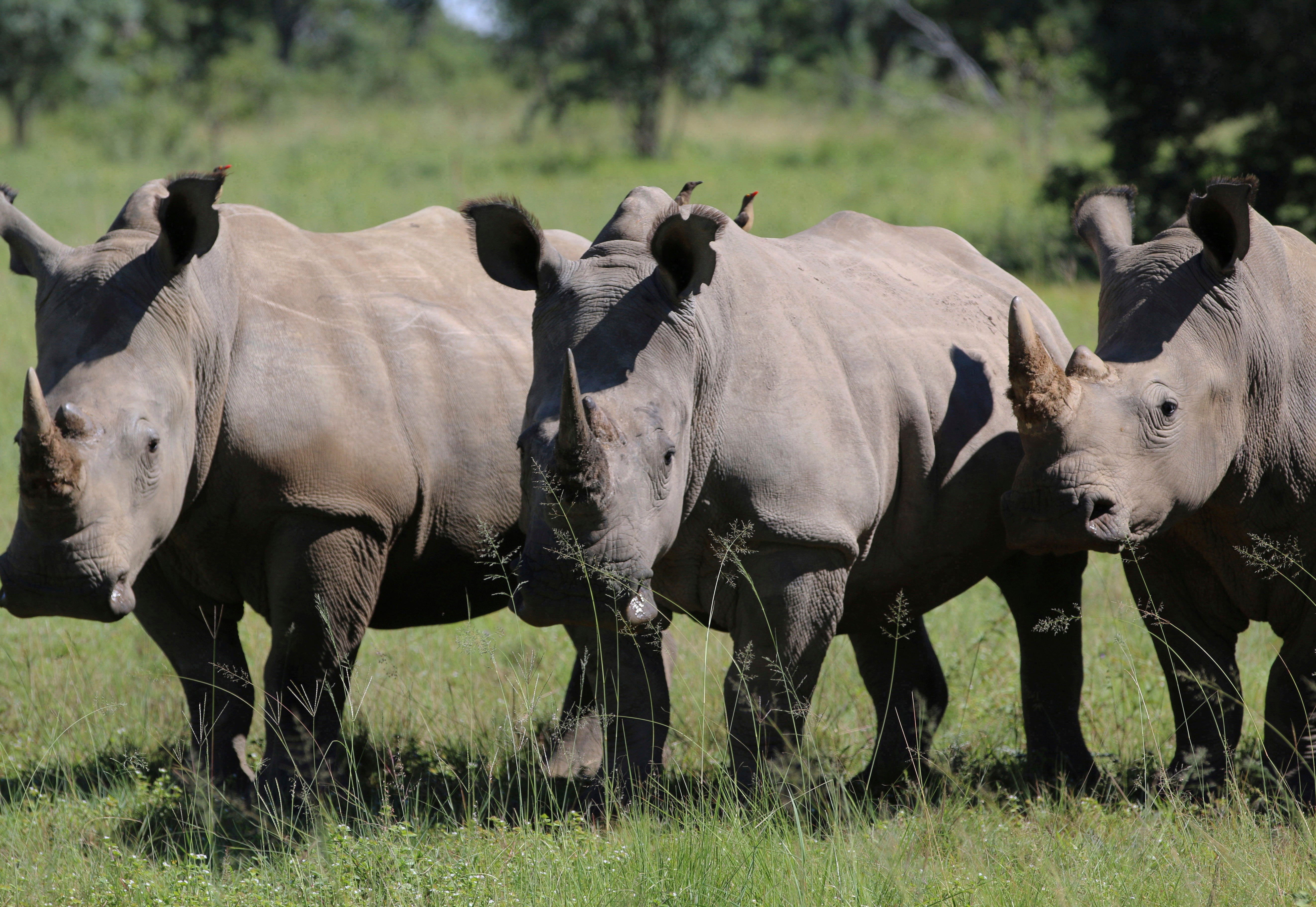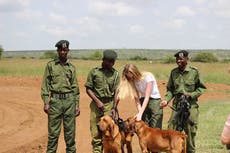The pandemic has slowed animal poaching down – but now we need to rehabilitate those who do it
With new funding, I intend to create a forum for reforming poachers and it is my hope that it will become a benchmark for other countries’ anti-poaching efforts


Your support helps us to tell the story
From reproductive rights to climate change to Big Tech, The Independent is on the ground when the story is developing. Whether it's investigating the financials of Elon Musk's pro-Trump PAC or producing our latest documentary, 'The A Word', which shines a light on the American women fighting for reproductive rights, we know how important it is to parse out the facts from the messaging.
At such a critical moment in US history, we need reporters on the ground. Your donation allows us to keep sending journalists to speak to both sides of the story.
The Independent is trusted by Americans across the entire political spectrum. And unlike many other quality news outlets, we choose not to lock Americans out of our reporting and analysis with paywalls. We believe quality journalism should be available to everyone, paid for by those who can afford it.
Your support makes all the difference.The poaching of any animal is a crime that deserves introspection and thorough investigation. As a wildlife intelligence officer, responsible for wildlife intelligence throughout Zimbabwe, it is my duty to ask what we could have done to prevent it. After this year of turmoil, that task will become more difficult. But a solution can be found in working with local communities.
The pandemic’s direct impact on conservation could appear, at the very surface level, to be positive. With international flights grounded, the supply chains of the illegal wildlife trade have been heavily disrupted.
Poachers’ usual avenues for exporting their illegal goods, such as pangolins and elephant tusks, have been largely cut off. As a result, many areas have witnessed significant declines in wildlife crime – indeed, in Hwange National Park, one of the areas I am responsible for monitoring, not a single elephant has been poached this year.
But be under no doubt: any positive side-effects of the pandemic will be short lived, and they are greatly outweighed by its negatives. Conservation efforts are under massive financial strain.
The pandemic has precipitated a devastating decline in tourism revenues, which are a significant source of funding for wildlife conservation efforts and – most pertinently – a lifeline for local communities. International donations have also suffered during this year’s economic crisis.
This funding crisis risks setting back conservation efforts for decades. The simple reason is that poaching, like many crimes, is borne of a lack of opportunity. The economic shockwaves of the pandemic will only increase the desperation felt in communities around protected areas. Just as night follows day, that will push more and more humans into conflict with Africa’s wildlife.
The impending crisis demands urgent action. One area that governments and international wildlife donors should target is the use of intelligence to combat wildlife crime. Intelligence is what I call the first line of defence for wildlife conservation, but it is greatly underfunded. By building relationships with communities, we can understand where and when poachers will seek to enter protected areas.
For example, Hwange National Park is half the size of Belgium. With our resources, such as our fuel allocation, being cut – and just one vehicle, which is not even a 4x4, at our disposal – how can we do this? The answer is: we need to be intelligent.
By understanding how poachers work and dismantle their networks at root in the communities, conservation efforts become much more effective. In Hwange National Park we have seen a significant reduction in poaching: from over 300 elephants killed in 2013, to 25 in 2019.
This record of using intelligence to tackle wildlife crime recently brought recognition, as I won the Tusk Wildlife Ranger Award. But I and Tusk share an understanding that conservation effort must be holistic. With generous funding from the award thanks to The Nick Maughan Foundation, we are now able to expand our efforts here in Zimbabwe, targeting two areas in particular: rehabilitation and education.
We must understand that local people turn to poaching because they have nowhere to start. Once they serve their time – nine years here in Zimbabwe – and return to society, their life circumstances will only have diminished and they risk returning to the very same life of crime.
What is needed is a real programme for rehabilitating poachers. With new funding, I intend to create a forum for reforming poachers and it is my hope that it will become a benchmark for other countries’ anti-poaching efforts.
Reformed poachers can be powerful ambassadors for conservation initiatives and can help provide invaluable insights to conservationists on how to tackle wildlife crime.
We know that addressing crime, including poaching, must start in schools and these former poachers could be powerful speakers in schools, spearheading anti-poaching campaigns and teaching young people to choose a different path.
Covid19 is truly a natural disaster, whose impact on conservation efforts will be far-reaching. As rural parts of Africa face extreme financial pressures, our response must be to develop anti-poaching efforts that work with, not against, local communities. It is my hope that the example we set here in Zimbabwe can be transferred across the African continent.



Join our commenting forum
Join thought-provoking conversations, follow other Independent readers and see their replies
Comments